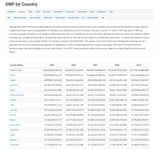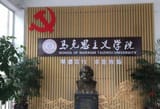How come they never teach you about Marxism in economics courses in college? Shouldn't they teach non-neoclassical theories of economics to be fair and balanced?
>>17945307 (OP)
>How come they never teach you about Marxism in economics courses in college?
I understand that in the study of philosophy Marx is kind of a big deal, not sure why but okay
In economic history he is a complete gadfly, a minor Ricardian, if you want to understand the economics or the economist in particular that Marx admired and tried and failed to iterate on, read Ricardo
I have an economics BA
Marx is a nobody in economics and the 'theories' he proposed are easily disproved nonsense
The reason economics professors, remember, these are econ PhDs, do not spend time on Marx in public or private schools in the US, I can only speak for the US, thats where I went to school, is because it would be a waste of their time and a waste of their students time
>How come they never teach you about Marxism in economics courses in college?
I understand that in the study of philosophy Marx is kind of a big deal, not sure why but okay
In economic history he is a complete gadfly, a minor Ricardian, if you want to understand the economics or the economist in particular that Marx admired and tried and failed to iterate on, read Ricardo
I have an economics BA
Marx is a nobody in economics and the 'theories' he proposed are easily disproved nonsense
The reason economics professors, remember, these are econ PhDs, do not spend time on Marx in public or private schools in the US, I can only speak for the US, thats where I went to school, is because it would be a waste of their time and a waste of their students time







